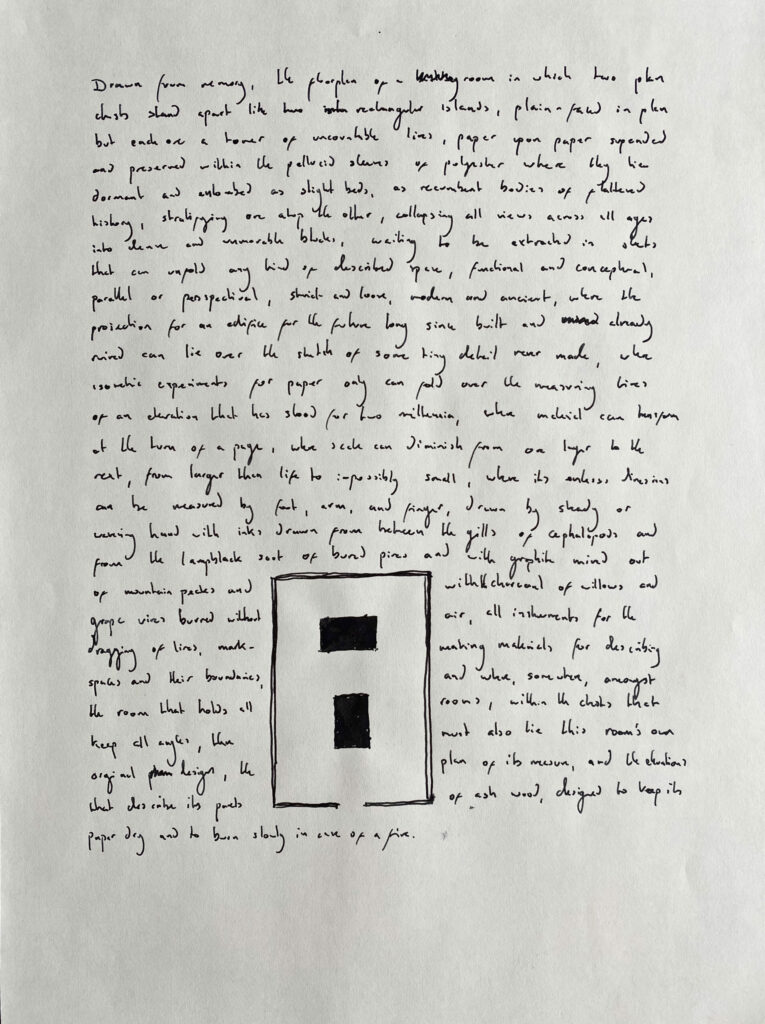The Floor Plan of a Room
Drawn from memory, the floor plan of a room in which two plan chests stand apart like two rectangular islands, plain-faced in plan but each one a tower of uncountable lines, paper upon paper suspended and preserved within the pellucid sleeves of polyester where they lie dormant and entombed as slight beds, as recumbent bodies of flattened history, stratifying one atop the other, collapsing all views across all ages into dense and unmovable blocks waiting to be extracted in sheets that can unfold any kind of described space, functional and conceptual, parallel or perspectival, strict and loose, modern and ancient, where the projection for an edifice for the future long since built and already ruined can lie over the sketch of some tiny detail never made, where isometric experiments for paper only can fold over the measuring lines of an elevation that has stood for two millennia, where material can transform at the turn of a page, where scale can diminish from one layer to the next, from larger than life to impossibly small, where its endless dimensions can be measured by foot, arm, and finger, drawn by steady or wavering hand with inks drawn from between the gills of cephalopods and from the lampblack soot of burned pines and with graphite mined out of mountain peaks and with the charcoal of willows and grape vines burned without air, all instruments for the dragging of lines, mark-making materials for describing spaces and their boundaries, and where, somewhere, amongst the room that holds all rooms, within the chests that keep all angles, there must also lie this room’s own original design, the plan of its measure, and the elevations that describe its panels of ash wood, designed to keep its paper dry and to burn slowly in case of a fire.

Thomas Hutton is an artist and writer based in Bassano in Teverina.
This text was submitted in the short form category (≤ 350 words) of the Drawing Matter Writing Prize 2020.
